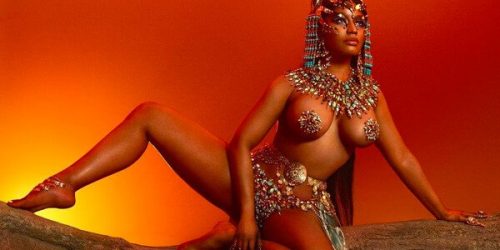The Weeknd’s Glorious Failure | The Idol Review
A problematic star vehicle for the Starboy.
In case you missed it, The Weeknd co-created and starred in HBO’s The Idol, and the results were borderline disastrous – critically panned with a 19% critic’s rating on Rotten Tomatoes. Personally, I was gripped and devoured all five hours in a single weekend – a rarity for me in my 30s.
We here at Culture Hash are no strangers to controversial television, we dived right in.
During its run, I went through a range of emotions: shocked, bored, scandalized, but mostly confused. The Idol has to be witnessed to be understood. Nevertheless, I feel that 19% is harsh; my feelings are closer to the 4.8 IMDB score. It’s not a great show, but I’m fascinated by its existence.
Let’s answer some burning questions:
Why did they let The Weeknd create a TV show?
Like most people, I first became aware of The Weeknd in 2011 with his debut mixtape House of Balloons, one of the most significant moments in modern R&B. At first, The Weeknd was an anonymous project; people even thought it was a two-person outfit.
With his type of hedonistic and overtly druggy R&B, it is still shocking to me that The Weeknd has become so successful. Earlier this year, Guinness World Records named him “statistically” the most popular musician in the world.
HBO is known for its history of edgy content, and partnering with one of the generation’s defining musicians seemed like a no-brainer. Judging by the amount of sexual content on offer in The Idol, it was the perfect place to showcase the kind of debauchery that goes through The Weeknd’s head.
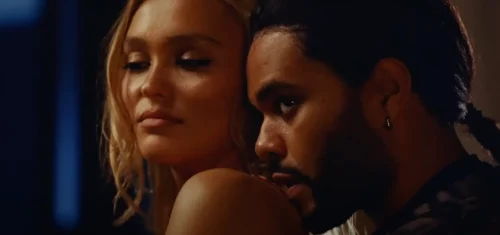
What is The Idol about?
Unfortunately, this isn’t an easy question to answer, as the show itself doesn’t really know what it’s about. It’s more like a 5-hour movie than a traditional episodic TV experience, due to sloppy writing and pacing rather than an attempt to subvert the established television format.
At its core, The Idol follows Lily-Rose Depp (daughter of Johnny Depp and French singer/actress Vanessa Paradis) as Jocelyn, a young pop star who is recovering from the death of her mother and hoping to revive her stalling career.
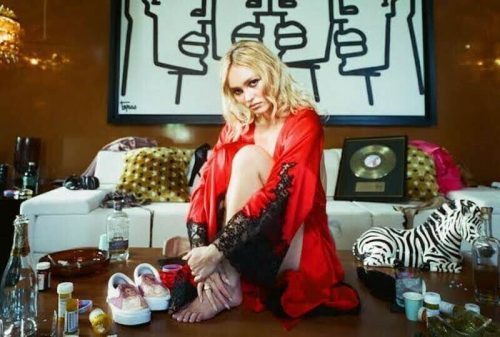
She meets sleazy nightclub owner Tedros Tedros (Abel Tesfaye, aka The Weeknd), who takes over her career and ingratiates her into his cult of personality. Other disciples include up-and-coming real-life musicians Suzanna Son and Moses Sumney, while Troye Sivan later joins, and they all contribute to The Idol’s soundtrack.
There are real Charlie Manson vibes as Tedros hopes to leverage his followers and unorthodox production skills to break into the shark-infested waters of the Hollywood entertainment industry.
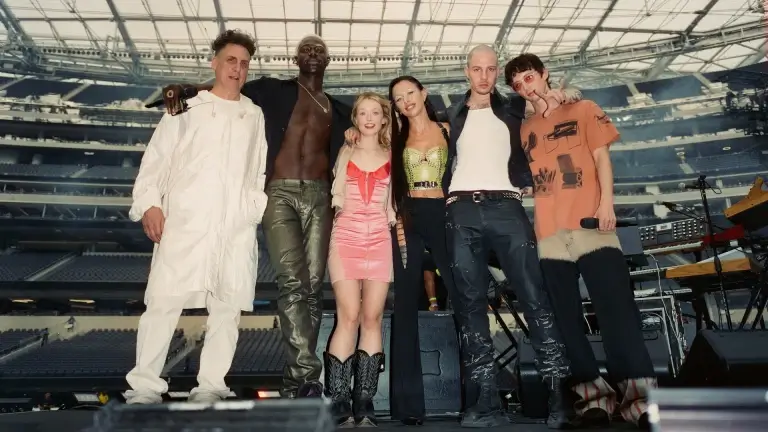
Why is The Idol problematic?
In March 2023, Rolling Stone published an article describing a toxic work culture on the set of The Idol based on conversations with production staff. The show was originally hoped to premiere in Autumn 2022; however, in April of that year, the original director Amy Seimetz suddenly departed with ’80 percent of the six-episode series finished.’
Seimetz was replaced by Euphoria creator Sam Levinson, who, along with The Weeknd, extensively retooled the show. The Weeknd is thought to have demanded the change as he felt the show was leaning too heavily into a “female perspective,” according to sources. The retooled show changed many cast members and storylines and cut the length from the original six to five episodes.
One issue raised with the new tone was the gratuitous amount of sex and nudity, with one source noting, “It was a show about a woman who was finding herself sexually, turned into a show about a man who gets to abuse this woman, and she loves it.” Comparing it to “sexual torture porn.”
Is The Idol good?
*spoilers ahead*
Most of the interesting ideas and questions raised by the show remain frustratingly unanswered. The Idol’s first episode was its best and introduced the rogues’ gallery of industry people in Jocelyn’s life: her manager [Hank Azaria], Live Nation representative [Eli Roth] a label executive [Jane Adams].
Their performances are great, especially Adams, and they congregate at Jocelyn’s home (The Weeknd’s real $70 million Bel-Air mansion), seemingly concerned about her welfare but primarily worried that the singer’s mental breakdown could jeopardize the upcoming tour.
We are led to believe that The Idol will ask ugly questions about the modern music industry and the place of women within it. Jocelyn is unhappy about the new music the label has chosen and feels unable to control her own career due to the millions invested.
Also, about halfway through, there’s a leaked image of cum on her face that provokes another crisis, initially kept from Jocelyn, further emphasizing her lack of control. Sadly, the whole “cumshot affair” doesn’t really affect much of the plot aside from a discussed attempt to use it as her Tedros-produced forthcoming album cover.
This storyline appears silly on paper. I was hoping it would raise questions about slut-shaming and female sexuality in the post-#MeToo media landscape. Instead, all the characters seemingly forgot it existed, and like many ideas, it was left unresolved. This is a shame; the resolution was lost in the fog of interminable sex scenes or meandering conversations that make up 70% of the show.
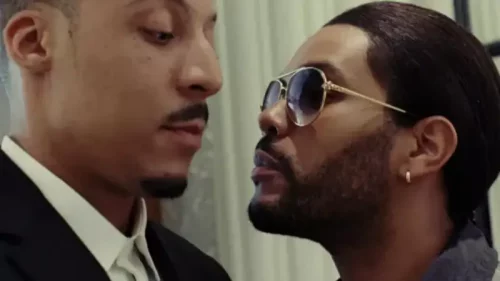
Speaking of poorly executed ideas…
What happened to Jennie’s character?
If you’ll allow me to get a bit personal here, I’ve lived in Korea since 2021, and one thing I’ve learned about this country is that they always back their people internationally.
One recent example: the Golden State Warriors recently signed a Korean prospect named Lee Hyun-Jung to their development team, shortly after they began showing D-League games on TV. It would be like showing K-League 2 on British TV because they’ve got a Brit sitting on the end of the bench. So, if someone from Korea is doing well abroad, it’s not unusual to see the country getting behind them to offer support.
What I found most inexplicable about the Korean reaction to The Idol was the complete lack of interest in the show. Jennie Kim made her acting debut under the name Jennie Ruby Jane and is, of course, one-fourth of BlackPink. In Korea, there’s been no reaction to the show, as if it never happened.
Considering how fiercely K-Pop stars have their images projected, I thought it was bold for her to appear in a show with so much sex and drugs occurring.
After watching, I understood the lack of Korean interest. Jennie’s character is inconsequential and feels like an afterthought. She was prominent in the first episode and affected the plot by introducing Jocelyn to Tedros Tedros at his club. She is introduced as Jocelyn’s best friend but has maybe ten minutes of screen time in the rest of the show.
According to the Rolling Stone article, a production source states, “They didn’t let her talk that much. Her job was to sit there [and] look pretty, basically.”
Why is The Idol bad?
After the first episode, the quality noticeably dips; it’s worth remembering that the original plan was for six episodes, which got chopped down to five. The pacing of the final two episodes noticeably suffers.
At the end of episode four, Jocelyn throws a big party at the house. Tedros has long since moved himself and his followers into the house and is controlling Jocelyn’s career and everyone else. After learning that Jennie has been in cahoots with The Weeknd, Jocelyn invites her ex-boyfriend over for revenge sex while Tedros melts down outside.
Maybe Jennie impacted the plot after all…
After this first act of rebellion, episode five opens with Jocelyn mocking Tedros in front of the suits. Considering the level of control he had over her and the house in the previous episode, it is jarring. During an impossibly long musical sequence, Tedros is discreetly removed from the house and discredited in the press.
The Vanity Fair journalist that Jocelyn has been avoiding is keen to exchange her story about a pop star’s dysfunctional private life to expose an ex-con nightclub owner. Mystifying. Her readers must have been shocked to learn that a person of ill repute could possibly own a nightclub.

In a bafflingly short period, Jocelyn went from watching Tedros torture Troy Sivan, her childhood friend, to receiving rough sex in a room full of shocked spectators. To forcibly remove him from her life with little build-up is implausible.
Even more far-fetched is the twist ending that suggests Jocelyn fabricated the mistreatment from her mother. Remember, Troye Sivan was tortured and left in his own filth for the rest of the day and maintained that the mother was abusive. The ending also makes us believe that Jocelyn was the one really pulling the strings with Tedros.
In the final scene, we see her in concert playing the new Tedros material in front of an adoring crowd (it was filmed at a real-life Weeknd concert in Los Angeles). She suddenly brings Tedros on stage and declares him “the love of my life.” Her team is shocked. She whispers to Tedros, “You’re mine forever. Now go stand over there,” and he meekly follows her instructions.
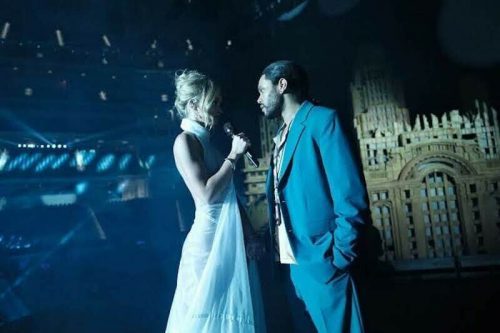
Again, this twist isn’t telegraphed to the audience and is forced into the last 15 minutes of the series. The final episode is especially messy and could have used build-up to make these sudden direction changes feel even remotely plausible.
The audience is left with many unanswered questions: Who leaked the cumshot photo? Who was she sleeping with? And so many questions about what was occurring outside the house. Instead of wasting so much time with house politics, The Idol was strongest when looking at the wider music industry instead of indulging Abel’s kinks.
How does The Idol compare to Purple Rain?
The Purple Rain film is the clearest inspiration for The Idol, where we see an iconic and vertically-challenged musician at the height of his power creating a star vehicle to appear on the big screen. Abel himself directly talks about the influence of Purple Rain, and there are plenty of references to the 1984 film during The Idol.
As a film, Purple Rain is nothing special but is saved by the majestic soundtrack, making it difficult for The Idol to meet such a lofty comparison. The emotional climax when The Kid performs Purple Rain for the first time is truly stunning; nothing comes close.
Weeknd and Prince are probably on the same level in terms of acting ability and inclusion of unnecessary sex scenes – Prince pushed the envelope as much as he could for 1984. If he had Weeknd’s BDSM kinks, we might expect something similar. Their characters are equally unlikeable, and neither really seems to learn their lessons about not hurting people.
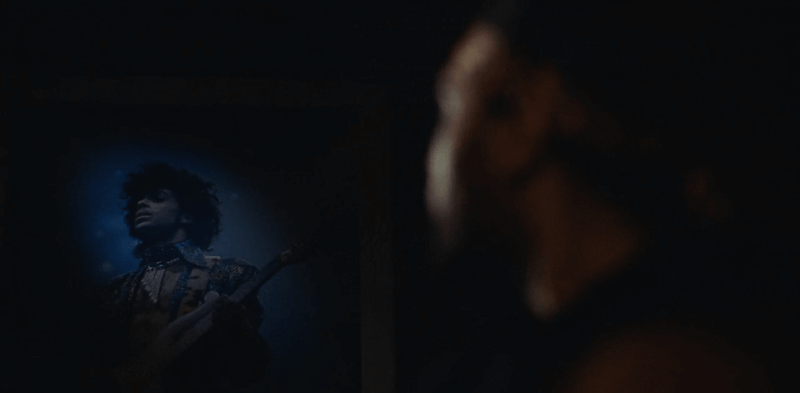
What’s good about The Idol?
The Weeknd’s acting isn’t as bad as suggested by many other people. Personally, I found it believable that he was a sleazy nightmarish figure who specialized in corrupting people. Granted, this likely isn’t far from his actual character, but he was convincing.
The music was really enjoyable. The Weeknd is all over the soundtrack, and the dark and twisted R&B that he records with Jocelyn was enjoyable. Even the “World Class Sinner” song that she rejects for being cliché pop tripe is a fun parody of the type of “bad girl, sleazy R&B Pop” that the likes of Ke$ha launched their careers with.
The soundtrack features Mike Dean (who also appears as an exaggerated super-stoner version of himself), Lil Baby, Future, and a small appearance from Jennie, who also feels like an afterthought on the soundtrack. It’s also fun to see The Weeknd not take himself too seriously. Unlike Prince in Purple Rain, the other characters in The Idol seem aware of how ridiculous the Tedros character is and openly mock his hairstyle and height.
Overall, The Idol’s legacy is that of a glorious failure, a bold project from HBO that attempts many things but is ultimately too fuzzy to make any of the statements it intended to. As a TV show, it was messy and boring in places but never failed to capture my attention. It was one of the most unique things I’ve watched, but I’m still not sure if it was good.
It’s not great, but I’m glad The Idol exists. 4 rattails out of 10.

